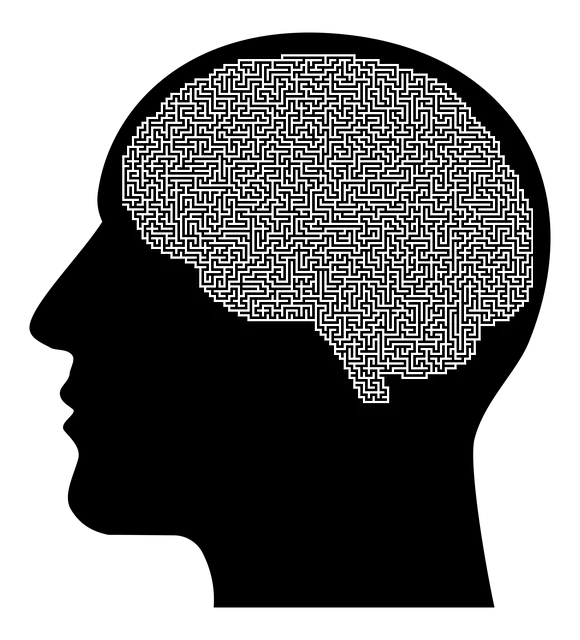Kaiser Permanente mental health center Aurora offers tailored coaching programs for diverse communities, focusing on resilience building, anxiety relief, and mindfulness meditation for holistic well-being. Using evidence-based practices like CBT, these modular sessions empower participants with long-term coping strategies. Rigorous training and credentialing ensure high-quality care, while comprehensive evaluation measures program effectiveness, tailoring interventions to clients' needs.
At Kaiser Permanente Aurora, recognizing the growing importance of mental wellness coaching, we’ve developed a comprehensive program to address escalating mental health needs. This article explores the strategic development of our mental wellness coaching initiatives, from understanding specific community requirements to designing structured interventions. We delve into evidence-based practices, coach training and credentialing, and rigorous evaluation metrics. By integrating these components, Kaiser Permanente Aurora aims to enhance mental health support, fostering resilience within our community.
- Understanding Mental Wellness Coaching Needs at Kaiser Permanente Aurora
- Designing Program Structure for Effective Mental Health Support
- Incorporating Evidence-Based Practices in Coaching Interventions
- Training and Credentialing Coaches for Quality Mental Wellness Care
- Measuring Success: Evaluation Metrics for Coaching Programs Effectiveness
Understanding Mental Wellness Coaching Needs at Kaiser Permanente Aurora

At Kaiser Permanente Aurora, understanding the unique mental wellness coaching needs of our community is paramount. As a leading Kaiser Permanente mental health center, we recognize that stress, anxiety, and mental health challenges are prevalent issues, impacting individuals across all demographics. Our approach to addressing these concerns involves tailoring coaching programs that focus on building resilience, offering strategies for anxiety relief, and integrating mindfulness meditation techniques into everyday life.
By evaluating the specific requirements of our diverse population, Kaiser Permanente Aurora’s coaching initiatives aim to empower individuals with practical tools and insights. These programs are designed to support mental wellness holistically, addressing not just symptoms but also fostering long-term coping mechanisms that enhance overall well-being. This targeted approach ensures that our community members receive comprehensive care tailored to their unique circumstances.
Designing Program Structure for Effective Mental Health Support

Designing the structure of a mental wellness coaching program requires careful consideration to ensure it effectively supports individuals’ mental health journeys. At Kaiser Permanente mental health centers, like the one in Aurora, professionals often tailor programs to meet diverse needs. This might involve modular sessions that cover various aspects of mental well-being, allowing participants to focus on specific areas such as stress management, anxiety reduction, or self-esteem improvement. Each module can be designed around evidence-based practices and incorporate interactive activities, group discussions, and personalized exercises.
The program’s structure should also promote a sense of community and encourage ongoing support. Incorporating peer mentorship, where participants can learn from one another’s experiences, can foster a powerful environment for inner strength development. Additionally, integrating Mind Over Matter principles—teaching individuals to reframe negative thoughts and cultivate a positive mindset—can be transformative. Such an approach ensures that the program not only provides immediate tools but also empowers participants with long-lasting strategies for mental wellness.
Incorporating Evidence-Based Practices in Coaching Interventions

Incorporating evidence-based practices is a cornerstone of effective mental wellness coaching programs, especially when drawing from resources like the Kaiser Permanente mental health center in Aurora. These centers often serve as models for best practices in mental health care and can inform coaching interventions. By integrating strategies that have been rigorously tested and proven to be beneficial, coaches can enhance their clients’ outcomes. For instance, Cognitive Behavioral Therapy (CBT) is a widely recognized evidence-based approach that helps individuals identify and change negative thought patterns and behaviors, ultimately improving their emotional well-being.
Designing mental health education programs with a focus on both theoretical knowledge and practical skills development ensures coaches are equipped to address diverse client needs. This includes incorporating risk assessment techniques to proactively manage potential challenges and ensure client safety. Additionally, fostering inner strength through coaching can empower individuals to navigate life’s stressors and adversity more effectively. Such an holistic approach, inspired by comprehensive mental health centers like Kaiser Permanente Aurora, can revolutionize coaching interventions, making them more tailored, effective, and accessible.
Training and Credentialing Coaches for Quality Mental Wellness Care

The development of mental wellness coaching programs requires a robust training and credentialing process to ensure high-quality care. At Kaiser Permanente mental health centers like Aurora, this involves rigorous preparation for coaches to effectively support individuals navigating various mental health challenges. Training should encompass not just clinical knowledge but also practical skills in active listening, empathy building (a key strategy to foster trust), and utilizing evidence-based Mind Over Matter Principles to enhance client resilience.
Credentialing ensures that only qualified and competent professionals deliver services. This process involves thorough evaluations of coaches’ understanding of mental illness stigma reduction efforts, their ability to create supportive environments, and adherence to ethical guidelines. By implementing such standards, Kaiser Permanente aims to promote effective and compassionate mental wellness care, reflecting a commitment to holistic well-being within the community.
Measuring Success: Evaluation Metrics for Coaching Programs Effectiveness

Measuring success is a critical aspect of any coaching program, especially when it comes to mental wellness. At the Kaiser Permanente mental health center in Aurora, evaluating the effectiveness of coaching initiatives involves a multi-faceted approach. Key metrics include client feedback and satisfaction surveys, tracking improvements in self-reported mental health symptoms, and assessing changes in lifestyle behaviors related to stress management.
Additionally, progress is regularly gauged through objective measures such as performance at work or school, improvements in social skills training, and enhanced capacity for inner strength development. These evaluation metrics not only help identify areas of program success but also pinpoint areas needing refinement, ensuring that coaching interventions remain tailored to the evolving needs of participants.
The development of a comprehensive mental wellness coaching program at Kaiser Permanente Aurora is a significant step towards enhancing patient care. By understanding specific needs, structuring programs effectively, and incorporating evidence-based practices, this initiative ensures high-quality mental health support. Proper training and credentialing for coaches are vital to maintaining consistent care standards. Through rigorous evaluation metrics, the program’s success can be measured, allowing for continuous improvement and a positive impact on the mental wellness journey of Kaiser Permanente Aurora patients.






